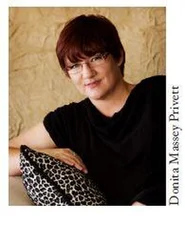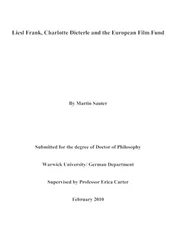Frank Tallis - Death And The Maiden
Здесь есть возможность читать онлайн «Frank Tallis - Death And The Maiden» весь текст электронной книги совершенно бесплатно (целиком полную версию без сокращений). В некоторых случаях можно слушать аудио, скачать через торрент в формате fb2 и присутствует краткое содержание. Жанр: Исторический детектив, на английском языке. Описание произведения, (предисловие) а так же отзывы посетителей доступны на портале библиотеки ЛибКат.
- Название:Death And The Maiden
- Автор:
- Жанр:
- Год:неизвестен
- ISBN:нет данных
- Рейтинг книги:5 / 5. Голосов: 1
-
Избранное:Добавить в избранное
- Отзывы:
-
Ваша оценка:
- 100
- 1
- 2
- 3
- 4
- 5
Death And The Maiden: краткое содержание, описание и аннотация
Предлагаем к чтению аннотацию, описание, краткое содержание или предисловие (зависит от того, что написал сам автор книги «Death And The Maiden»). Если вы не нашли необходимую информацию о книге — напишите в комментариях, мы постараемся отыскать её.
Death And The Maiden — читать онлайн бесплатно полную книгу (весь текст) целиком
Ниже представлен текст книги, разбитый по страницам. Система сохранения места последней прочитанной страницы, позволяет с удобством читать онлайн бесплатно книгу «Death And The Maiden», без необходимости каждый раз заново искать на чём Вы остановились. Поставьте закладку, и сможете в любой момент перейти на страницу, на которой закончили чтение.
Интервал:
Закладка:
Rheinhardt frowned.
‘But Rosenkrantz didn’t do anything wrong, as such.’
‘Of course she didn’t,’ Mahler agreed. ‘But I suppose Amsel imagined Rosenkrantz secretly learning her best-loved roles in readiness for the moment when she could step into her shoes. And it did make a good story: the shy, diminutive soprano, thrust into the limelight by chance and given an opportunity to demonstrate her prodigious gift. It is the stuff of legends. Not strictly true, of course, but that’s what the critics wrote.’ Mahler picked up the metronome and slid the weight down the pendulum rod, from largo to presto . He seemed perplexed. ‘I suppose you will want to interview Fraulein Amsel. But I really don’t see how she will be able to help you. Amsel and Rosenkrantz were hardly intimates. They never spoke, apart from the exchange of an occasional frigid greeting.’
Rheinhardt did not reply, because at that juncture the director’s secretary re-entered the room. He was carrying a square of blue paper on which Herr Schneider’s address was copied out in a neat, pedantic hand.
‘Thank you,’ said Rheinhardt, folding the sheet into his notebook. Then, looking up at the director, he asked, ‘Is Fraulein Amsel in the building?’
The director put the metronome down and consulted a massive volume that looked like an accountant’s ledger.
‘I believe she is rehearsing in the red room.’
Rheinhardt stood up.
‘I would like to speak to her, if I may. I won’t keep her long.’
‘Very well,’ said the director. ‘Przistaupinsky will take you. But before you go …’ Mahler turned to face Liebermann. ‘Herr Doctor, do you have a card?’
10
They could hear her long before they arrived outside the red room. She was repeating the same line. Even though the director had expressed the view that Amsel’s gift had, in the past, been over-estimated, she was still an operatic diva, and the proximity of such a powerful voice made Liebermann’s heart race. The fragment of melody that she was practising ascended to a beautiful high note that she sustained before gradually introducing a gentle, warm tremolo .
Przistaupinsky knocked on the door.
When the singing stopped, they entered.
The red room was clearly so called on account of its overwhelming redness. All four walls were covered with a bright red paint and the large Persian rug laid out on the floor was also red. The effect administered a violent shock to the eye.
At the far end of the room was a grand piano at which a youthful accompanist was seated. Next to the piano stood a woman, and beside her was a short olive-skinned man with a pointed black beard. Przistaupinsky introduced Rheinhardt and Liebermann and then said a few words concerning the purpose of their visit. On hearing Rosenkrantz’s name, the olive-skinned man made the sign of the cross and bowed his head.
An arrangement was made to resume the rehearsal in thirty minutes, and Przistaupinsky, the accompanist, and the olive-skinned gentleman left the room.
Liebermann studied the soprano.
She was in her late twenties and possessed an abundance of dark hair, the extremities of which had a tendency to twist into coils. Her eyebrows were high, forming almost semicircular arches, and her nose was, if a little too long, finely cast. The lips beneath the nose were wide and coloured a shade of red that matched the brightly painted walls. She was not overly large, as the critics had implied, but she was certainly tall and had an imposing appearance. The loose-fitting dress that she wore was green and cut from a material that shimmered. Even her smallest movements created vivid coruscations that intimated the contours of her figure beneath — the curvature of her hips, and the full swell of her breasts. A silver and emerald crucifix hung from her neck.
Rheinhardt looked at the score on the music stand. It was an aria from Verdi’s Aida .
‘Do you read music, Inspector?’ asked the soprano, seating herself on a chair by the piano.
‘Yes.’
‘And do you sing?’
‘Well,’ said Rheinhardt, his cheeks flushing. ‘I would hesitate to make such a claim in present company.’
Amsel accepted the compliment tacitly by rippling her fingers.
‘Actually,’ said Liebermann, ‘he’s rather good for an amateur. A very competent lyric baritone.’
The diva’s eyebrows, already naturally elevated, found further scope for ascent.
‘Then perhaps we should try a duet, Inspector.’
‘I think not,’ said Rheinhardt, lowering himself onto the piano stool. ‘Much as I would deem it a great honour.’
Rheinhardt fancied that although Amsel’s suggestion wasn’t wholly serious, it wasn’t made entirely in jest, either. What a story it might have made, in years to come: how he had sung a duet with the celebrated prima donna. Rheinhardt dismissed the thought and returned the conversation to the subject of Ida Rosenkrantz.
‘Yes, poor Ida,’ said Amsel, touching her crucifix. ‘How dreadful, to turn away from God, to rebel against one’s maker.’ Then, looking from Rheinhardt to Liebermann and back again, she added, ‘But I’m not sure that I can help you. We were not … friends.’
‘You must have been acquainted.’
‘Well, yes … But … ’ Amsel’s ample bosom rose and descended as she produced a lengthy sigh. ‘I do not wish to speak ill of the dead.’
‘No one ever does. I will not judge you unkindly for being honest.’
‘We were not friends,’ Amsel repeated. ‘Indeed, it is no secret that our relationship was somewhat strained. We rarely spoke. I am sure that von Mildenberg, Forster-Lauterer, Slezak or even Winkelmann would be much better informed concerning Fraulein Rosenkrantz’s circumstances and state of mind.’
Rheinhardt removed his notebook and scribbled down the names.
‘Why was your relationship with Fraulein Rosenkrantz strained? What was so contentious?’
‘Are petty opera house squabbles really of interest to the police, Herr Inspector?’ Rheinhardt did not respond and as the silence intensified Amsel was obliged to supply an answer: ‘She turned people against me.’
‘Who?’ Rheinhardt asked.
‘I trust this conversation is confidential?’
‘Of course.’
‘The other singers — some of the critics — even Director Mahler. I do not want to speak ill of her, especially now, and I have remembered her in my prayers.’ Again the singer touched her crucifix. ‘But there was something about her … something about her appearance, a kind of fragility, the illusion of childish innocence, that she used to her advantage. She found it easy to manipulate men. And men run the opera house.’
‘Why would she want to turn people against you?’
‘Jealousy, Inspector.’ These words were spoken with decisive finality. Amsel clearly believed that her vocal superiority was indisputable and that only a man whose musical instincts had been horribly corrupted by Rosenkrantz’s perfidious charms could possibly think otherwise.
Liebermann crossed the Persian rug and leaned back against the piano, his arms folded.
‘Why,’ he began, ‘did you say that Ida Rosenkrantz turned away from God?’
‘Because she took her own life,’ the singer replied, a little perplexed. Then, looking narrowly at Liebermann, she added, ‘In the Catholic faith, Herr Doctor, self-slaughter is considered a mortal sin.’
‘Indeed,’ said Liebermann. ‘But why do you suppose she committed suicide?’
‘I am not supposing anything, Herr Doctor. I read that she had committed suicide in the Zeitung and the Tagblatt.’
‘The newspapers reported that Fraulein Rosenkrantz could have committed suicide. It was also suggested that Fraulein Rosenkrantz’s death might have been accidental. The reports were inconclusive.’
Читать дальшеИнтервал:
Закладка:
Похожие книги на «Death And The Maiden»
Представляем Вашему вниманию похожие книги на «Death And The Maiden» списком для выбора. Мы отобрали схожую по названию и смыслу литературу в надежде предоставить читателям больше вариантов отыскать новые, интересные, ещё непрочитанные произведения.
Обсуждение, отзывы о книге «Death And The Maiden» и просто собственные мнения читателей. Оставьте ваши комментарии, напишите, что Вы думаете о произведении, его смысле или главных героях. Укажите что конкретно понравилось, а что нет, и почему Вы так считаете.












